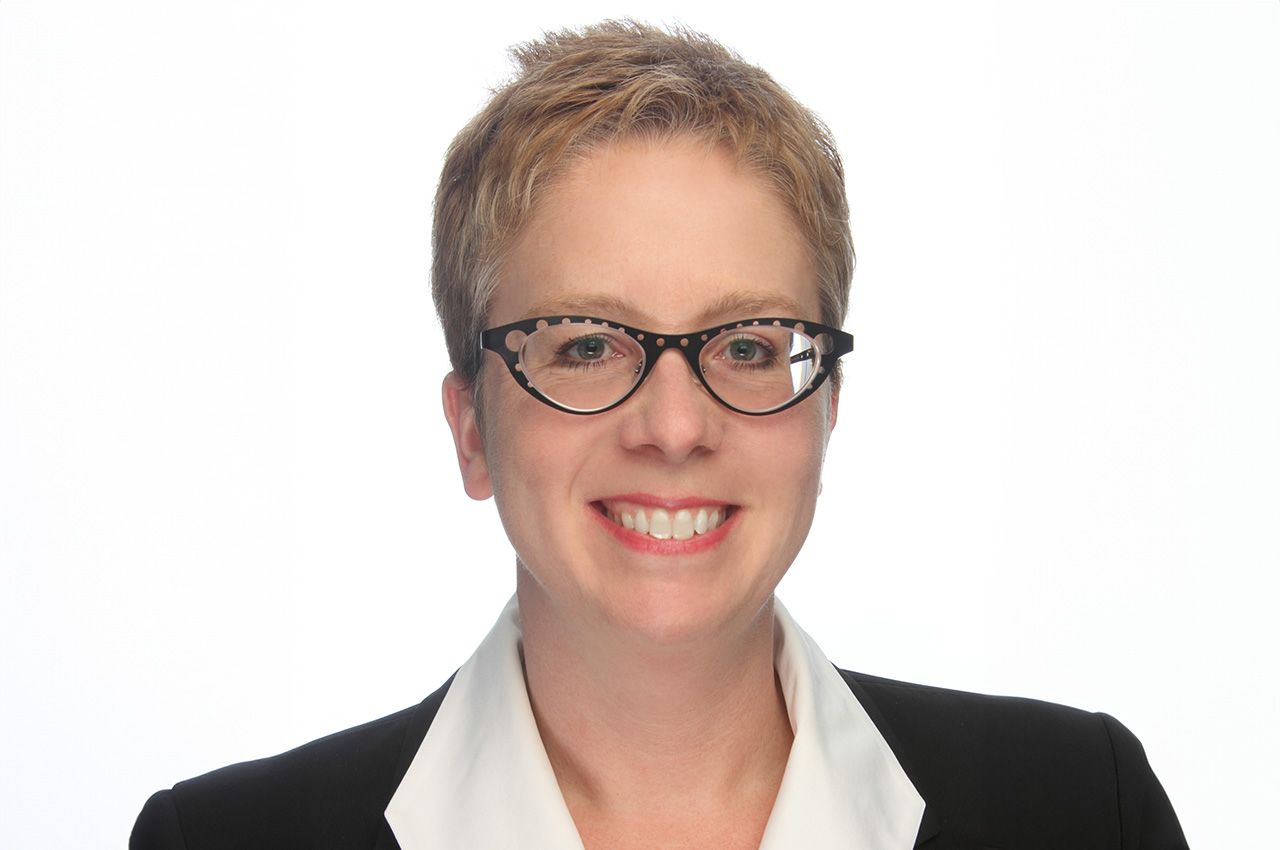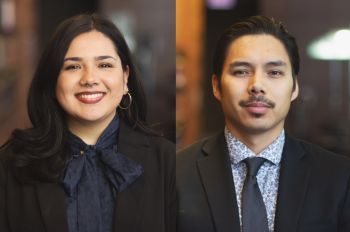Religious Freedom or Discrimination? Jamie Franklin and Team Defend Fired Female Professor

“In the view of Moody Bible Institute, the religious autonomy doctrine should be stretched to the point that it categorically bars all non-religious discrimination and retaliation claims,” says Chicago-Kent College of Law Associate Clinical Professor Jamie Franklin.
Franklin, as supervising attorney of the C-K Law Group’s Civil Litigation Clinic, is representing former Moody Bible Institute professor Janay Garrick. In a case that could end up in front of the United States Supreme Court, Garrick is suing Moody for sex discrimination under Title VII of the Civil Rights Act of 1964 stemming from her termination in 2018. Moody claims she was fired for not sharing its views on Christianity.
Garrick holds “egalitarian” beliefs, meaning that in her view, women and men should hold equal roles in the church, a fact that she says she made the university’s human resources office aware of during the hiring process. Moody, on the other hand, subscribes to the “complementarian” view, in which women are not allowed to be in ministerial and leadership roles but should instead complement the men in those roles. Despite Moody’s claims that the school’s ministry programs were open to women at various times throughout the years, no women were admitted.
“She was grappling with this issue, as well as her desire to help students, both female and transgender students, who were experiencing discrimination at Moody. Garrick helped them bring Title IX complaints,” says Franklin. “Once she started to become more of an activist, she began to run into opposition by the administration, and, ultimately, she was terminated. We say that Moody fired her because of her sex, while Moody attempts to hide behind the religious autonomy doctrine to argue that the court cannot analyze whether its stated reason (disagreement over the role of women in the church) is pretext for discrimination.”
Ordinarily, an employer wouldn’t be allowed to fire an employee on religious grounds, but there is a ministerial exemption under Title VII. But there’s a catch to that, as well. For Moody to use this exemption, Garrick would have to be deemed minister, and although she is ordained, Moody refuses to recognize her as a minister because she is a woman.
“They wanted her to remove the fact that she was an ordained minister from her resume when she first started. They didn’t allow her to speak during religious services or lead prayer groups,” says Franklin. “She lost a tax deduction for housing costs that professors who are ministers are entitled to.”
In fact, Garrick alleges she wasn’t employed in a religious role at all. She was teaching communications courses.
“The way Moody’s faculty were organized is that the men were clustered in the more prestigious departments like ministry, and the women were clustered in less prestigious departments like communications,” says Franklin.
In her day-to-day work life, Garrick says she was subjected to other discrimination, being treated differently than male colleagues, even those who shared her egalitarian views.
“She was ostracized. She wasn’t accepted into the social world. A lot of the other professors who she interacted with were males who made her life uncomfortable,” says Franklin. “She was told, ‘You need to learn how to speak around here,’ when she made a proposal that they found ‘inflammatory.’ That’s a very gendered way of putting her in her place.”
For these reasons, the district court judge allowed the lawsuit to go ahead on the basis that Garrick believed she was fired, not for religious reasons, but because of sex discrimination.
Garrick came to Franklin for help initially, but ended up representing herself for much of the early portion of the case, while receiving advice from Franklin behind the scenes. Eventually, Franklin came on officially, and the case has only continued to grow.
“I’ve never seen a defendant file more motions. It was motion after motion after motion,” says Franklin. “When we realized that this was going to get bigger, we looked for a nonprofit that specializes in litigation related to the separation of church and state to come in and help us.”
Garrick and Franklin called on the nonprofit American United for Separation of Church and State, while rival nonprofit Becket Law assisted Moody.
Moody would like the case dismissed based on the First Amendment’s freedom of religion protections.
“They’re arguing that you’re not allowed to look behind their decisions, because even the very act of trying to find out whether they're lying would impermissibly entangle the courts in religious matters,” Franklin explains.
A decision on this argument could set a major case law precedent in the fight over the separation of church and state. Major entities across the country, from the U.S. Equal Employment Opportunity Commission to the American Civil Liberties Union to the Utah attorney general and groups of conservative law professors, have filed amicus briefs in the case.
This issue of whether the case should even go forward made it to the U.S. Court of Appeals for the Seventh Circuit, where arguments were heard on December 5, 2023. Attorney Bradley Girard, litigation counsel for Americans United for Separation of Church and State, handled the appeal. Franklin believes that the ruling could come out in Garrick’s favor, but that’s not the end.
There are two other similar cases going through appeals elsewhere in the country. If the three cases are decided differently, then the split decisions could mean that the case ends up being decided in the U.S. Supreme Court.
“The Supreme Court right now is super focused on these questions of religious autonomy,” says Franklin. “They want to expand that principle as far as they can, so we don't know what’s going to happen if the case gets there.”



